THE WEEK IN REVIW 3-9 May
A roundup of the week's major political and social events

România Internațional, 08.05.2021, 13:00
Vaccine rollout goes
smoothly in Romania
Romania is doing ‘extremely
well’ in terms of its vaccine rollout, Romanian president Klaus Iohannis said
on Thursday after the daily ceiling of 100 thousand people vaccinated had been exceeded.
Authorities in Romania have diversified the ways through which Romanians can
get the vaccine, easing the people’s access to various vaccination centers. The
authorities’ goal is to have 5 million people vaccinated by June 1st.
Since the vaccine roll out kicked off in Romania in late December, out of the 6
million people vaccinated, 2.2 million have got the the booster. Romania has
this week started to use the single-jab vaccine produced by
Johnson&Johnson.
Donation for the
neighboring Romanian-speaking Republic of Moldova
The government in Bucharest
has this week endorsed a new humanitarian aid for the Romanian-speaking
Republic of Moldova consisting in 100 thousand doses of the Astra Zeneca
vaccine in an attempt to assist this country’s efforts to contain the pandemic.
According to government sources, authorities in the two countries have
concluded an agreement on reselling the vaccine, 200 thousand doses per month.
The government has also passed a series of technical elements concerning the
donation of 100 thousand doses to the neighboring Ukraine.
School resumes in Romania
Schools in Romania
reopened on Wednesday and are presently functioning on-line and in-person
depending on the infection rate in certain areas across the country. Schools
reopened after the four-week spring holiday. According to the country’s
Education Minister Sorin Cimpeanu, children are now physically attending primary
schools and kindergartens and in the regions where the infection rate has
dropped under one per thousand, secondary schools and high-schools are also offering
in-person courses. According
to the latest official data, over 1,800 localities in Romania are now in the
green scenario in terms of Covid-19 infections, with less than one case per
thousand inhabitants. In the other approximately 1,400 localities, where the
infection rate is higher, middle and high school pupils resumed online classes.
8th and 12th graders, who are to take exams this summer, will resume school on
May 10.
New relaxation measures in
Romania as of June 1st
Authorities in Romania are
considering new relaxation measures after June 1st, when people are
allowed to give up face covering while on trips in the mountains, on the beach,
in gyms and swimming pools. Under the new measures vaccinated persons will be
allowed to attend private parties whereas some businesses, such as restaurants
and hotels may be allowed to function at full capacity if all personnel and
customers have been immunized. Only vaccinated fans will be allowed to attend
the football matches part of the European Football Championship Romania is due
to host this summer. According to Romania’s Prime Minister Florin Citu, this is
the solution proposed by the UEFA, which he also agrees. Referring to
large-scale events such as the music festivals Untold and Neversea, the Prime
Minister says they cannot be staged starting June 1st but rather
after August 1st.
The Government in Bucharest
has endorsed the Convergence Programme and adjusted the National Recovery and
Resilience Plan (PNRR)
Romanian
government has endorsed the Convergence Programme comprising a series of
reforms assumed by the executive in various fields such as the pension system,
payment, state enterprises and public administration. The country’s Prime
Minister Florin Citu has explained the document is part of the Fiscal-budgetary
Strategy and the National Resilience and Recovery Plan. He mentioned the talks
he had with ministers over the PNRR asking them to get directly involved in the
process of completing it shortly before the upcoming talks with the EU
representatives. Citu has mentioned that upon the EU recommendation, the PNRR
budget has been trimmed from 42 billion euros to 29 billion Euros. The Romanian
official has given assurances the plan will absorb all the EU funds available to
Romania.
GRECO report on Romania
Romania continues to lag behind with
regard to judicial reforms and the fight against corruption, according to the
latest report by GRECO, the Council of Europe’s specialized body. According to
the document, Romania has implemented only five out of the 18 GRECO
recommendations. Overall, the Bucharest
authorities appear determined to remedy or abandon many of the controversial
legal reforms adopted during the previous Social Democratic administration, the
report reads. However, Romania’s level of compliance with its
recommendations to prevent corruption in respect of MPs, judges and prosecutors
remains globally unsatisfactory despite some progress and planned reforms that
still are at an early stage. As for Members of Parliament, the level remains
unchanged, with the exception of some procedural requirements, with only two of
the nine recommendations implemented. Given the importance of these
recommendations for preventing corruption among parliamentarians, GRECO emphasizes
that more determined action is needed to implement them. Regarding the prevention of corruption among judges and
prosecutors, the report shows that much more determined steps are needed in
this direction as well. The report also shows that a stronger role for the
Supreme Council of Magistracy in this process is still needed, and the
involvement of the executive power, i.e. the Minister of Justice, in appointing
or removing top prosecutors should be diminished to ensure judicial
independence. It is also necessary to establish clear and objective criteria
for the promotion of judges and prosecutors, taking into account their real
qualifications and merits. In
Bucharest, the Liberal Prime Minister Florin Cîţu says that the GRECO report
shows that Romania is on the right track. Justice laws will no
longer be abused and we will not witness again what happened between 2017 and
2019, Citu says.
(bill)





























